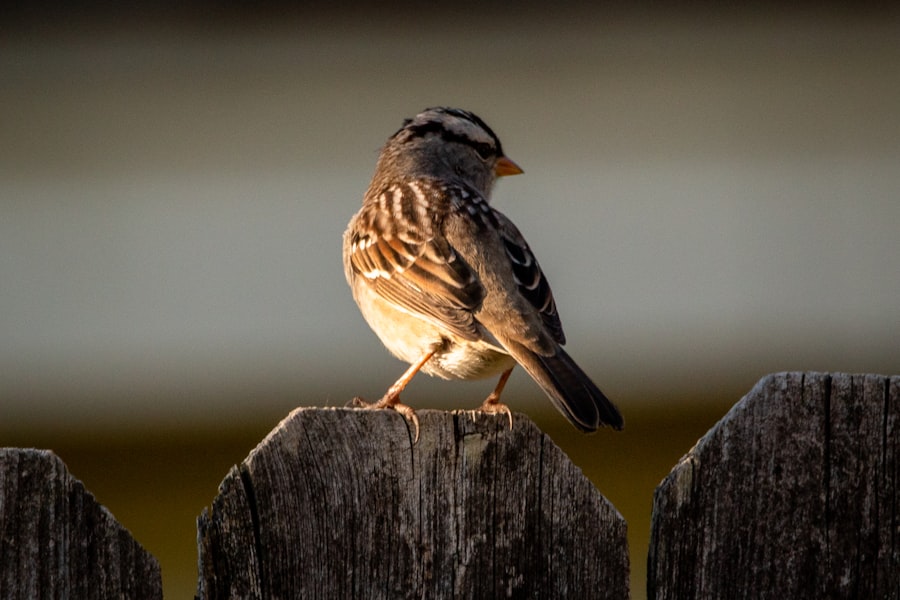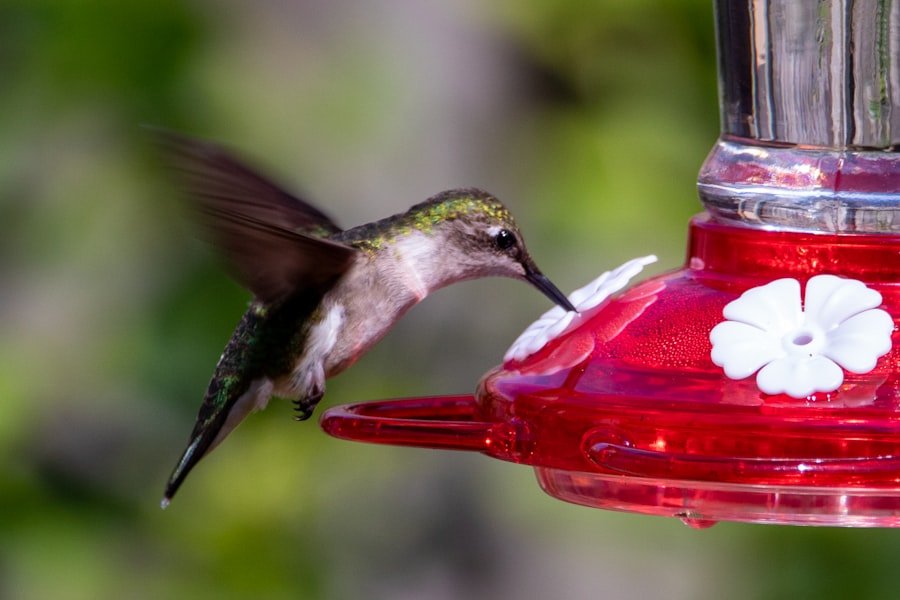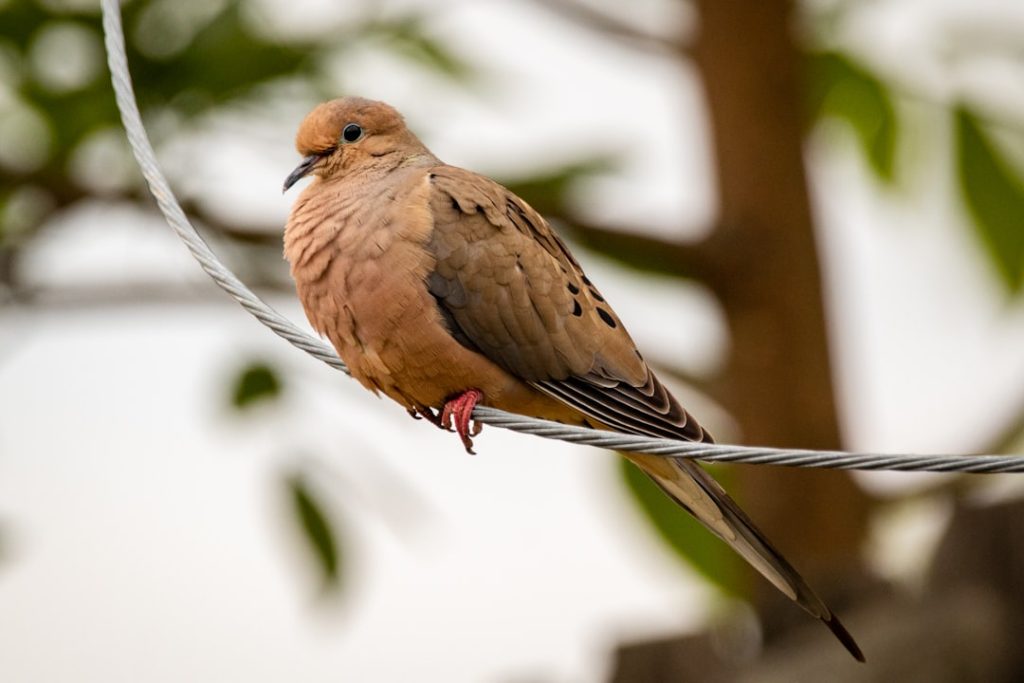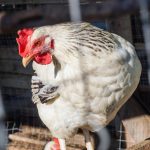Keeping chickens in your garden offers numerous advantages for both gardeners and their outdoor spaces. These birds serve as effective pest controllers, consuming insects, slugs, and snails, thus reducing the need for chemical pesticides. Chicken droppings provide a valuable source of natural fertilizer, rich in nitrogen, phosphorus, and potassium, which are essential for plant growth and soil health.
Maintaining a backyard flock also ensures a sustainable supply of fresh eggs. Home-produced eggs are often more nutritious than store-bought alternatives, as the chickens have access to a varied diet through foraging. This practice can also serve as an educational opportunity for children, teaching them about animal care, responsibility, and food production.
Beyond practical benefits, chickens can contribute to personal well-being and foster a connection with nature. Many individuals find interacting with chickens to be therapeutic and calming. The presence of these birds in the garden, with their gentle clucking and foraging behaviors, can create a peaceful atmosphere.
Chickens can also be a source of entertainment and companionship, often becoming accustomed to human interaction. Ultimately, incorporating chickens into a garden setting can enhance both the productivity and enjoyment of the outdoor environment.
Table of Contents
- 1 Choosing the Right Breed of Chickens for Your Garden
- 2 Building a Coop and Run for Your Chickens
- 3 Feeding and Caring for Your Garden Chickens
- 4 Managing Waste and Keeping Your Garden Clean
- 5 Integrating Chickens into Your Garden Ecosystem
- 6 Legal and Ethical Considerations for Keeping Chickens in Your Garden
- 7 FAQs
- 7.1 What are the benefits of keeping chickens in the garden?
- 7.2 What do chickens need to thrive in a garden environment?
- 7.3 What are some important considerations for keeping chickens in a garden?
- 7.4 How can I protect my garden from damage caused by chickens?
- 7.5 What are some common breeds of chickens that are suitable for garden environments?
- 7.6 What should I consider before introducing chickens to my garden?
Key Takeaways
- Fresh eggs are a major benefit of keeping chickens in your garden, providing a sustainable food source for your family.
- Consider the size, temperament, and egg-laying capabilities of different chicken breeds when choosing the right breed for your garden.
- Building a secure coop and run is essential for protecting your chickens from predators and providing them with a safe and comfortable environment.
- A balanced diet, access to fresh water, and regular health checks are important for the well-being of your garden chickens.
- Proper waste management and regular cleaning are necessary to maintain a healthy and hygienic garden environment when keeping chickens.
Choosing the Right Breed of Chickens for Your Garden
Space and Living Conditions
The size of your garden and the available space for your chickens to roam are crucial considerations. Some breeds thrive in free-range environments, foraging and exploring, while others are content in smaller, more confined spaces.
Climate and Adaptability
The local climate is another essential factor to consider. Choose a breed that is well-suited to the weather conditions in your area. Some breeds are more cold-hardy, while others excel in warmer temperatures.
Purpose and Breed Characteristics
The purpose for which you want to keep chickens also plays a significant role in breed selection. If egg production is your primary goal, opt for a breed renowned for its laying abilities. For those seeking a dual-purpose breed, consider chickens that can provide both eggs and meat. Alternatively, some enthusiasts may prefer ornamental or rare breeds for their unique appearance or historical significance.
Ultimately, the right breed for your garden will depend on your specific needs and preferences.
Building a Coop and Run for Your Chickens

Building a coop and run for your chickens is an essential part of keeping them safe, healthy, and happy in your garden. The coop is where your chickens will roost at night and lay their eggs, while the run is an enclosed outdoor area where they can exercise and forage during the day. When designing and building a coop and run, it’s important to consider the size and layout of your garden, as well as the number of chickens you plan to keep.
The coop should provide adequate space for each chicken to roost comfortably and lay their eggs in nesting boxes. It should also be well-ventilated to prevent moisture buildup and allow for good air circulation. Additionally, the coop should be predator-proof, with secure latches and sturdy construction to keep out potential threats such as foxes, raccoons, and birds of prey.
The run should be spacious enough to allow your chickens to move around freely and engage in natural behaviors like scratching and dust bathing. It should also be covered with wire mesh to protect your chickens from aerial predators. When building a coop and run, it’s important to use high-quality materials that are durable and weather-resistant.
Consider using natural materials like wood and metal that blend in with the aesthetic of your garden. You may also want to incorporate features like windows, doors, and ramps to make it easy for you to access the coop and for your chickens to move in and out. Overall, a well-designed coop and run will provide a safe and comfortable home for your garden chickens.
Feeding and Caring for Your Garden Chickens
Feeding and caring for your garden chickens is an important aspect of keeping them healthy and productive. Chickens require a balanced diet that includes a mix of grains, protein, vitamins, and minerals. You can provide commercial chicken feed as a base diet, which is formulated to meet their nutritional needs.
Additionally, you can supplement their diet with kitchen scraps, fruits, vegetables, and even insects that they can forage for in your garden. It’s important to provide fresh water for your chickens at all times, as they need it for digestion, temperature regulation, and overall health. Make sure that their water containers are kept clean and free from contaminants.
In addition to food and water, chickens also need regular care and attention. This includes cleaning their coop and run regularly to prevent the buildup of waste and parasites. You’ll also need to monitor their health and behavior for any signs of illness or injury.
Furthermore, providing enrichment for your chickens can help to keep them mentally stimulated and happy. This can include things like perches, dust bathing areas, and toys or treats that encourage natural behaviors. Spending time with your chickens can also help to build a bond with them and ensure that they are well-socialized.
Overall, feeding and caring for your garden chickens requires dedication and attentiveness, but the rewards of healthy, happy chickens are well worth the effort.
Managing Waste and Keeping Your Garden Clean
Managing waste from your garden chickens is an important aspect of responsible chicken keeping. Chicken droppings can be a valuable source of fertilizer for your garden, but they can also become a source of odor and potential contamination if not managed properly. One way to manage chicken waste is through composting.
You can collect droppings from the coop and run and add them to a compost pile along with other organic materials like yard waste and kitchen scraps. Over time, the compost will break down into nutrient-rich soil amendment that can be used to fertilize your garden. In addition to composting, it’s important to regularly clean the coop and run to prevent the buildup of waste and parasites.
This includes removing soiled bedding from the coop, cleaning nesting boxes, and raking or turning over the soil in the run to prevent odors and pests. You may also want to consider using deep litter in the coop, which involves adding layers of bedding material like straw or wood shavings that break down over time with the help of beneficial microorganisms. Furthermore, managing waste from your garden chickens can also involve finding creative ways to reuse or recycle materials.
For example, you can use chicken droppings as a base for making homemade fertilizer tea or as an ingredient in vermiculture (worm composting). You can also use eggshells as a source of calcium for your garden soil or as a pest deterrent around plants. Overall, managing waste from your garden chickens requires a proactive approach that considers both the environmental impact and potential benefits of chicken waste.
Integrating Chickens into Your Garden Ecosystem

Pest Control and Soil Aeration
As they scratch at the soil with their feet, chickens can help to aerate the soil and incorporate organic matter into the top layers. This natural process can improve soil structure and fertility, promoting healthy plant growth.
Symbiotic Relationship and Natural Fertilizer
Integrating chickens into your garden ecosystem can create a symbiotic relationship between plants and animals. For example, you can use chicken manure as a natural fertilizer for your garden beds or compost piles. The nitrogen-rich droppings can help to improve soil fertility and promote healthy plant growth.
Thoughtful Planning and Management
It’s important to consider the specific needs of both your plants and your chickens when integrating them into your garden ecosystem. For example, you may need to protect certain plants from being trampled or eaten by chickens by using fencing or barriers. You may also need to rotate areas of access for your chickens to prevent overgrazing or soil compaction in specific areas. Overall, integrating chickens into your garden ecosystem requires thoughtful planning and observation to ensure a harmonious balance between plants and animals.
Legal and Ethical Considerations for Keeping Chickens in Your Garden
Before keeping chickens in your garden, it’s important to consider the legal and ethical implications of doing so. Firstly, check with local authorities or homeowner’s associations to determine if there are any regulations or restrictions on keeping chickens in residential areas. Some areas may have zoning laws that limit the number of chickens you can keep or require certain setbacks from property lines or neighboring homes.
Additionally, consider the ethical responsibilities that come with keeping chickens as pets or livestock. Ensure that you have the time, resources, and commitment necessary to provide proper care for your chickens throughout their lives. This includes providing adequate shelter, food, water, veterinary care when needed, and protection from predators.
Furthermore, consider the impact that keeping chickens may have on your neighbors or community. Be mindful of noise levels from crowing roosters or clucking hens, as well as potential odors or waste management issues that could affect others nearby. Overall, keeping chickens in your garden can be a rewarding experience that provides numerous benefits for both you and your outdoor space.
However, it’s important to approach chicken keeping with careful consideration of legal regulations and ethical responsibilities to ensure a positive experience for everyone involved.
If you’re considering keeping chickens in your garden, you may also be interested in learning about what vegetables quails eat. Check out this article to discover the best vegetables to feed your quails for optimal health and nutrition. And if you’re in need of a coop for your chickens, be sure to explore the Producers Pride Sentinel Chicken Coop and the Farmhouse Chicken Coop, both of which are featured on PoultryWizard.com.
FAQs
What are the benefits of keeping chickens in the garden?
Keeping chickens in the garden can provide several benefits, including fresh eggs, natural pest control, and fertilizer for the garden.
What do chickens need to thrive in a garden environment?
Chickens need access to fresh water, a balanced diet, shelter from the elements, and protection from predators in order to thrive in a garden environment.
What are some important considerations for keeping chickens in a garden?
Important considerations for keeping chickens in a garden include local regulations and ordinances, providing adequate space for the chickens to roam, and ensuring proper waste management.
How can I protect my garden from damage caused by chickens?
To protect your garden from damage caused by chickens, you can use fencing, raised beds, and other barriers to keep the chickens out of specific areas.
What are some common breeds of chickens that are suitable for garden environments?
Some common breeds of chickens that are suitable for garden environments include Rhode Island Reds, Plymouth Rocks, and Orpingtons, among others.
What should I consider before introducing chickens to my garden?
Before introducing chickens to your garden, you should consider the amount of space available, the potential impact on neighbors, and the time and effort required to care for the chickens.
Meet Walter, the feathered-friend fanatic of Florida! Nestled in the sunshine state, Walter struts through life with his feathered companions, clucking his way to happiness. With a coop that’s fancier than a five-star hotel, he’s the Don Juan of the chicken world. When he’s not teaching his hens to do the cha-cha, you’ll find him in a heated debate with his prized rooster, Sir Clucks-a-Lot. Walter’s poultry passion is no yolk; he’s the sunny-side-up guy you never knew you needed in your flock of friends!







